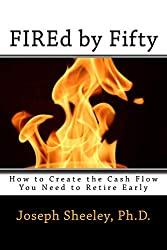
Photo by Nataliya Vaitkevich on Pexels.com
" data-orig-size="867,1300" sizes="(max-width: 683px) 100vw, 683px" data-image-title="magnifying glass on top of tax documents" data-orig-file="https://smallivy.files.wordpress.com/2012/12/pexels-photo-6863174.jpeg" data-image-description="" data-image-meta="{"aperture":"0","credit":"","camera":"","caption":"","created_timestamp":"0","copyright":"","focal_length":"0","iso":"0","shutter_speed":"0","title":"","orientation":"0"}" data-medium-file="https://smallivy.files.wordpress.com/2012/12/pexels-photo-6863174.jpeg?w=200" data-permalink="https://smallivy.com/2022/11/10/tis-the-season-to-reduce-your-taxes/pexels-photo-6863174/" alt="" srcset="https://smallivy.files.wordpress.com/2012/12/pexels-photo-6863174.jpeg?w=683 683w, https://smallivy.files.wordpress.com/2012/12/pexels-photo-6863174.jpeg?w=100 100w, https://smallivy.files.wordpress.com/2012/12/pexels-photo-6863174.jpeg?w=200 200w, https://smallivy.files.wordpress.com/2012/12/pexels-photo-6863174.jpeg?w=768 768w, https://smallivy.files.wordpress.com/2012/12/pexels-photo-6863174.jpeg 867w" class="wp-image-22922" data-large-file="https://smallivy.files.wordpress.com/2012/12/pexels-photo-6863174.jpeg?w=683" />Photo by Nataliya Vaitkevich on Pexels.comIronically, the changes to the tax law being proposed by various billionaires would actually not affect their taxes. The reason is that the changes would affect income, and people who become and stay wealthy generally have very little income. You see, if you own a million shares in a company (maybe starting with a thousand shares that then split a bunch of times), your net worth would increase as the price of the stock increases. You don’t pay taxes, however, until you sell some shares.
In a way this is fair, in that you really don’t have access to the money until you sell the shares, and the money is at risk until you sell the shares. All of the value could disappear if the company got into trouble. You are also paying taxes each year, in that the company is paying corporate taxes on any profits they make, which reduces the value of your shares or the dividend you receive. Probably the most unfair thing about the situation is that a wealthy person can start a foundation and then “give” all of their shares to it, appoint their children and heirs as officers, thereby guaranteeing them lifelong employment and access to the facilities and assets of the foundation. In doing this, taxes are never paid (capital gains or death taxes) and yet the money made benefits their descendents. (Author’s note – this is how I understand it works, but I certainly am not an expert. Comments to correct any misstatements would be much appreciated.)
If you have a few billion dollars worth of shares, but only need a couple of hundred thousand dollars to pay for expenses (you wouldn’t have mortgages or car payments since you would buy everything for cash, so $200,000 would go a long way), you would only need to sell enough shares to take out $200,000. You would then only pay taxes on that cash. So even if you made a billion dollars in appreciation from your shares, you’d only pay income taxes on the $200,000 worth fo shares that you sold, and then you’d only pay taxes on your gain on those shares. You might also not need to sell shares if the company was paying a substantial dividend (in that case you would pay taxes at the dividend rate).
You don’t need to be a multi-millionaire to do some wise tax planning,however, and this is the time of year to make some last-minute trades to help your tax situation. Here are some tips (please check with your accountant – every situation is different and the rules can change):
Hey – if you like The Small Investor, help keep it going. Buy a copy of the SmallIvy Book of Investing: Book1: Investing to Grow Wealthy or just click on one of the product links below, then browse and buy something you need from Amazon’s huge collection. The Small Investor will make a small commission each time you buy a product through one of our links.

Sell losers to offset winners: In April, you will pay taxes on your net gain. If you make $1000 on one stock and lose $1000 on another, your net gain will be zero. Most smart investors will sell shares in a position in which they lost money if they sell shares of a stock in which they have a large gain. I generally don’t advocate selling a stock just because of taxes, but if you are selling a big winner anyway (for example, you have a stock that has gone up so much that it is now a large portion of your portfolio and you are selling half of the position to trim it down to size), it makes sense to also close a position that just didn’t work out and doesn’t have much promise. Conversely, if you are selling stock at a loss, you may want to look at your winners and see if you want to trim them down.
Sell losers to offset income: You can also offset up to $3000 of your regular income by selling stocks at a loss. This is another good reason to get rid of your losers. You can also carry some of the losses forward into future years. Check with your accountant on how to do this.
Be wary of wash sales: Maybe you’re tempted to sell some shares of a losing position, but you still think it has promise. Avoid the temptation to buy back the shares within 30 days (or buy additional shares and then sell your original shares within 30 days). The IRS will consider this a “wash sale.” They won’t send you to prison, but you won’t be allowed to deduct the loss. The same goes for starting an “essentially identical position” within 30 days, for example if you sell one S&P500 fund but then buy shares in another company’s S&P500 fund. . Before trying any fancy maneuvers, check with your accountant.
Note that there are no wash sale rules if you have a gain – the IRS is happy to have you sell shares at a gain and then take up the same position. Usually this would make no sense, but if you are afraid taxes will go up in future years – a good possibility this year – it may make sense to sell some shares now and pay the lower tax rates, particularly if you will need the money within the next five years or so.

FIREd by Fifty: How to Create the Cash Flow You Need to Retire Early
Selling short against the box: One way of locking in a gain but delaying when the taxes are realized is to sell shares of the same company short (this is called “selling short against the box”). For example, let’s say you have 100 shares of XYZ which is at $20 per share, and you bought the shares for$10 per share, for a $1000 gain. If you sold them today you would need to pay taxes on that $1000 gain this year. If you sold 100 shares short against the box, however, and then waited until January to have the two positions wash, you could delay the gain into next year. Note that if the stock went down the gain on the short sale would exactly offset the loss on the shares, and vice versa. This strategy may not make sense this year since it looks like taxes, especially taxes on capital gains, is likely to go up in 2013. It may actually make sense to take gains this year instead of next. Once again, check with your accountant since the rules may have changed.
Put money in tax advantaged accounts: Don’t forget to open and fund IRA’s, educational IRA’s and the like. In some cases you get a tax deduction this year. In other cases you get to withdraw the funds tax-free if you follow the rules. Opening and contributing to these types of accounts are great not just because of taxes. They also make you put money away that you will need later. Someday you will no longer be able to work, and some day your kids will want to go to college. It’s good to put away some money now.
‘Tis the season to save on taxes. Take a look at cleaning up your portfolio, fund your tax-advantaged accounts, and talk to your accountant for strategies specific to your situation today.
Please contact me via smallivy@smallivy.com or leave a comment.
Disclaimer: This blog is not meant to give financial planning or tax advice. It gives general information on investment strategy, picking stocks, and generally managing money to build wealth. It is not a solicitation to buy or sell stocks or any security. Financial planning advice should be sought from a certified financial planner, which the author is not. Tax advice should be sought from a CPA. All investments involve risk and the reader as urged to consider risks carefully and seek the advice of experts if needed before investing.
